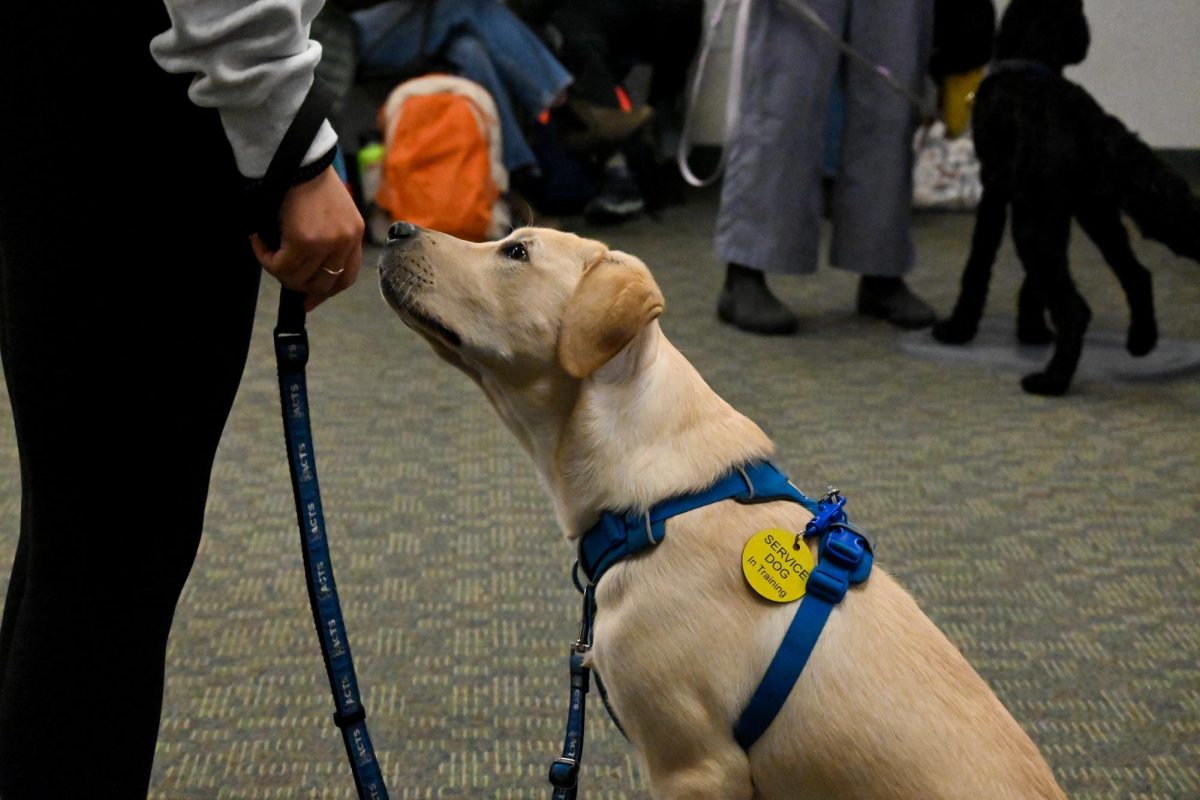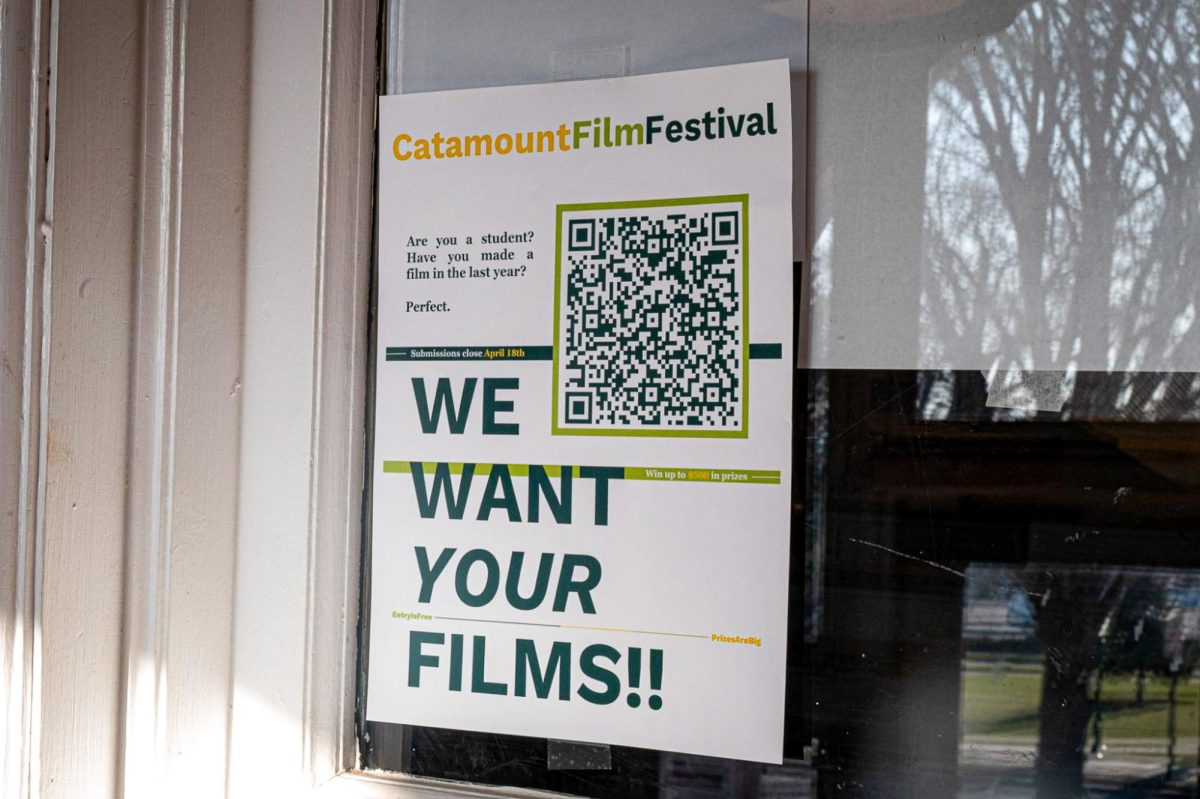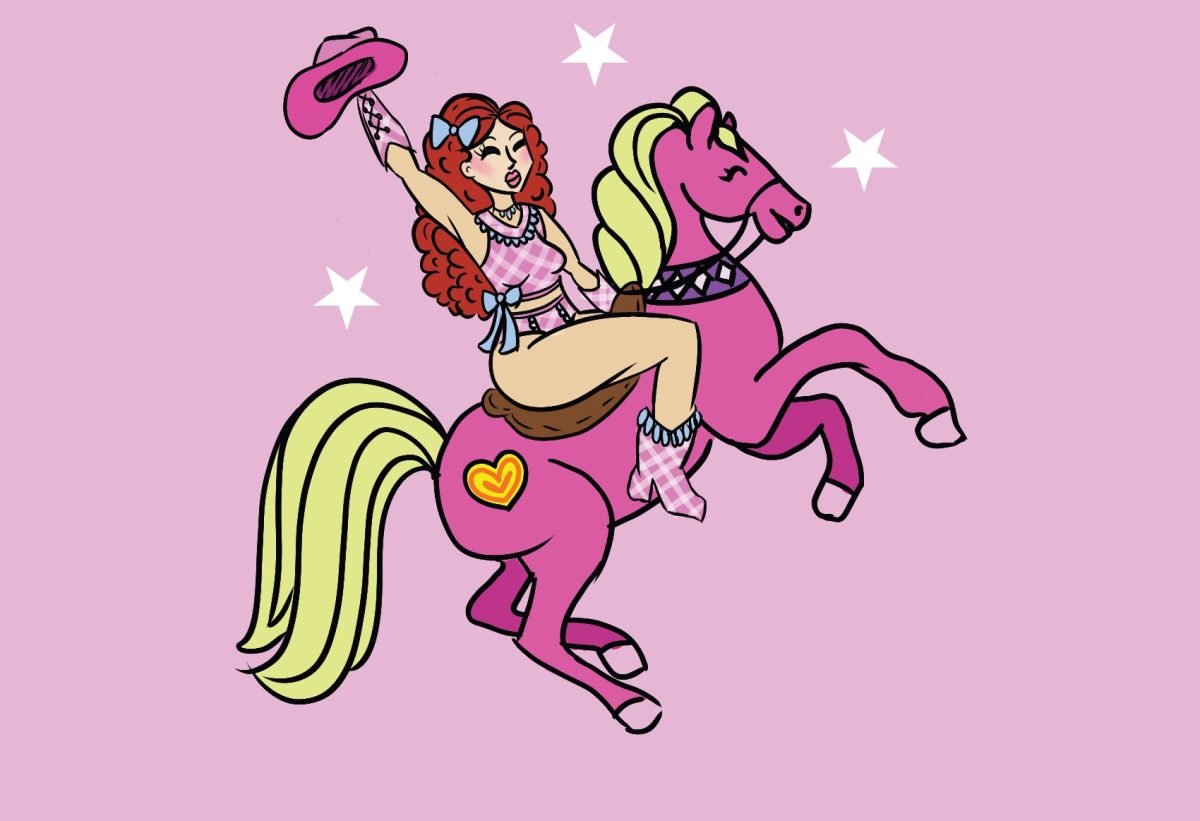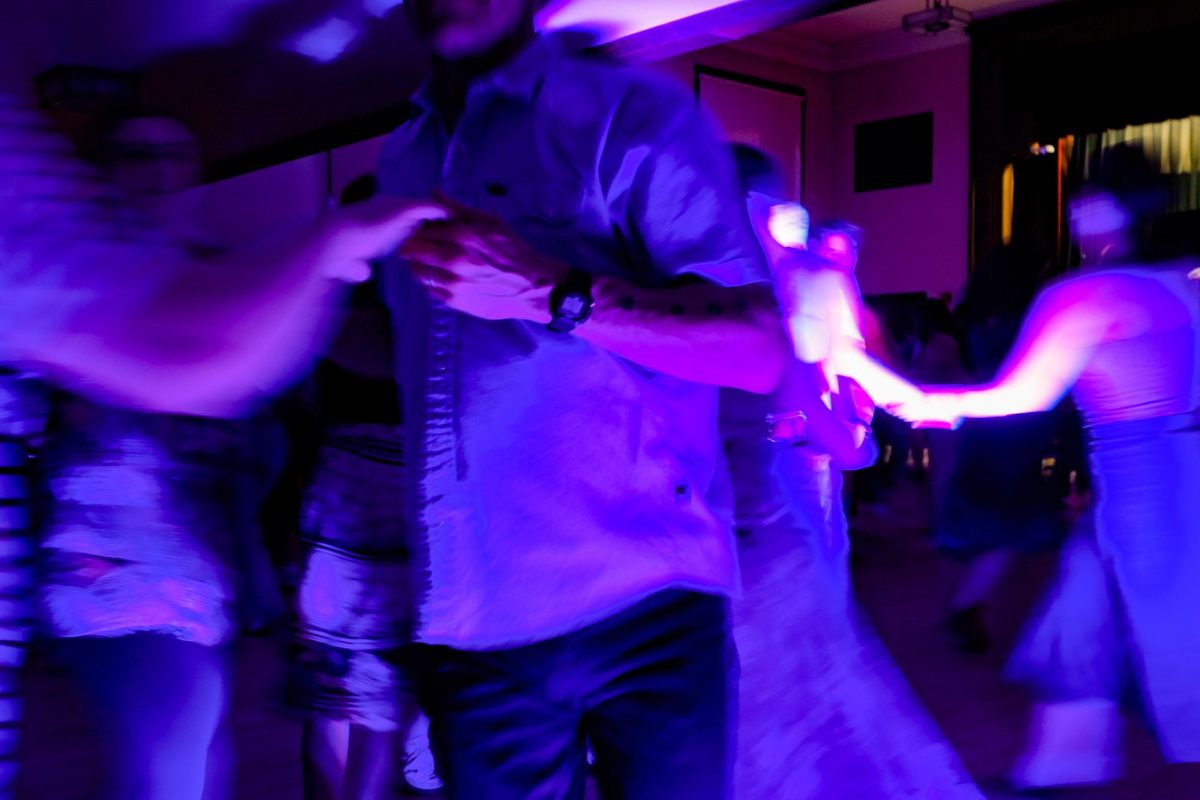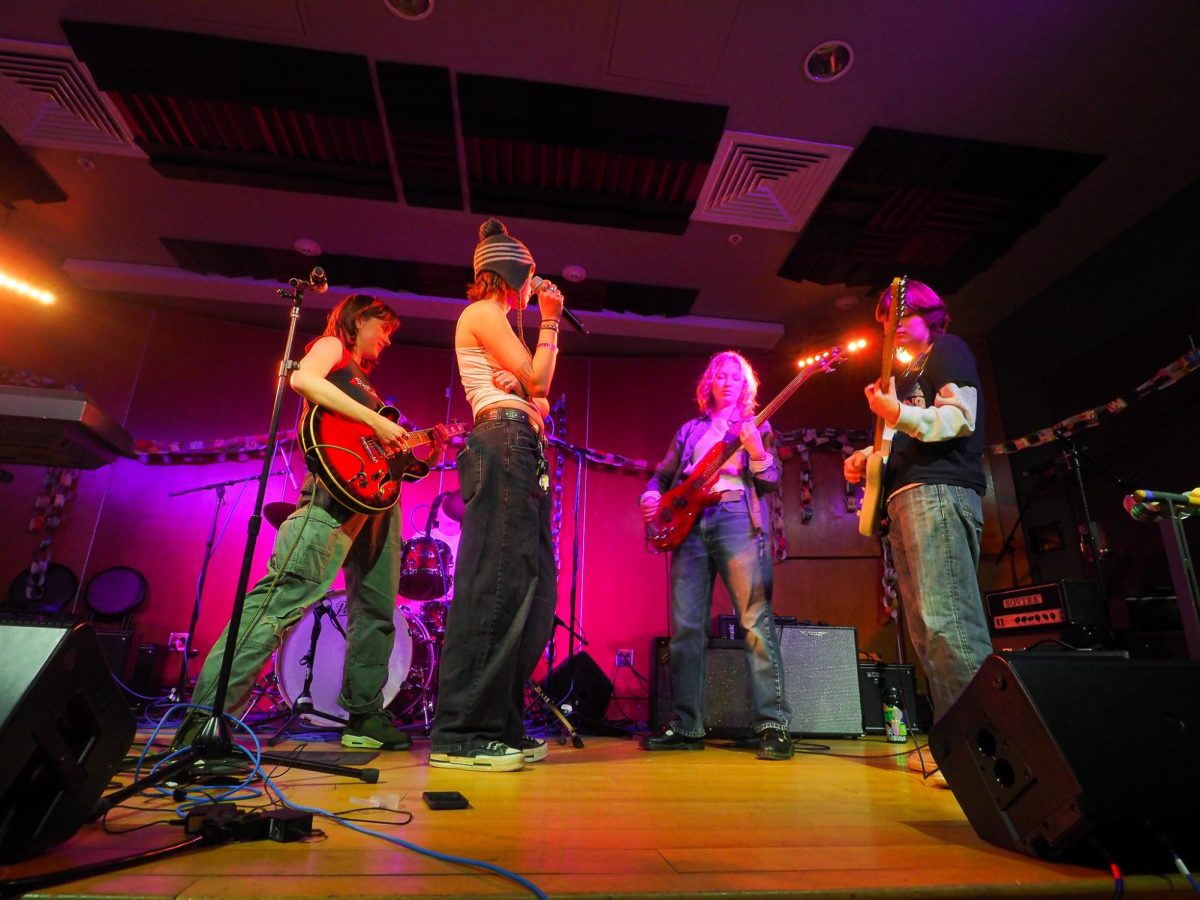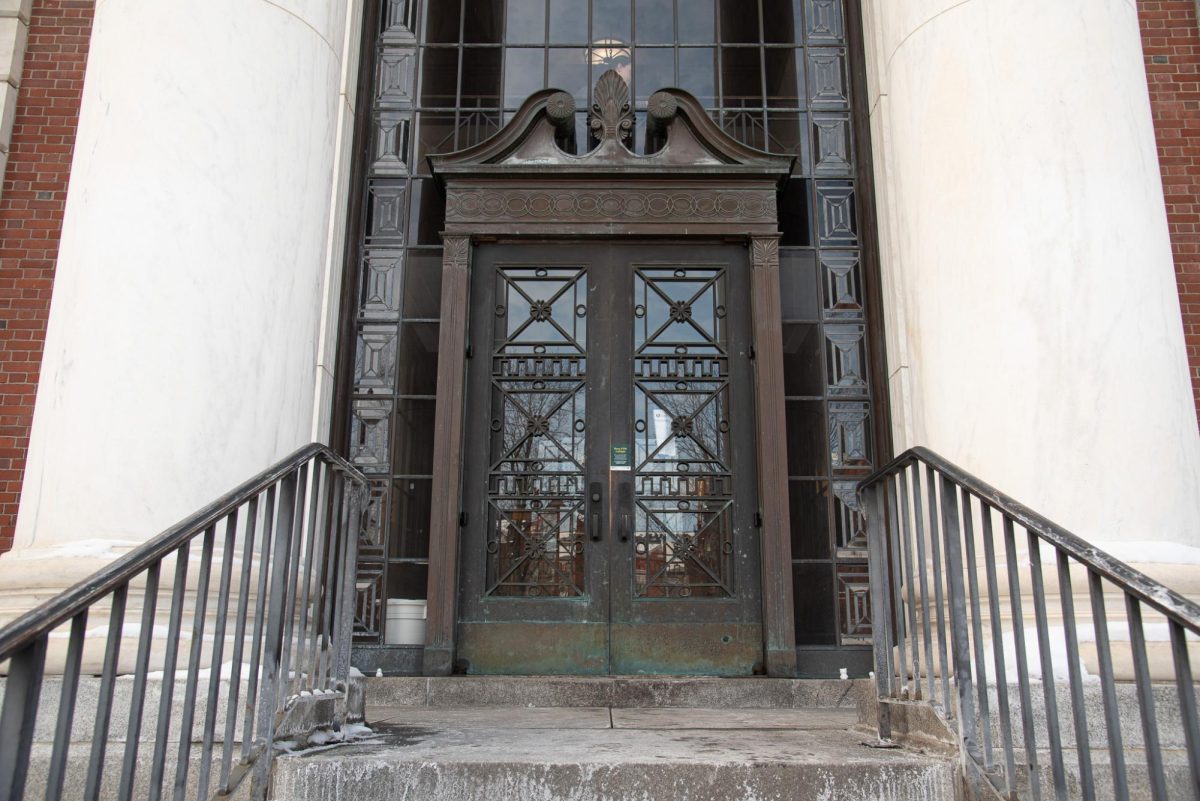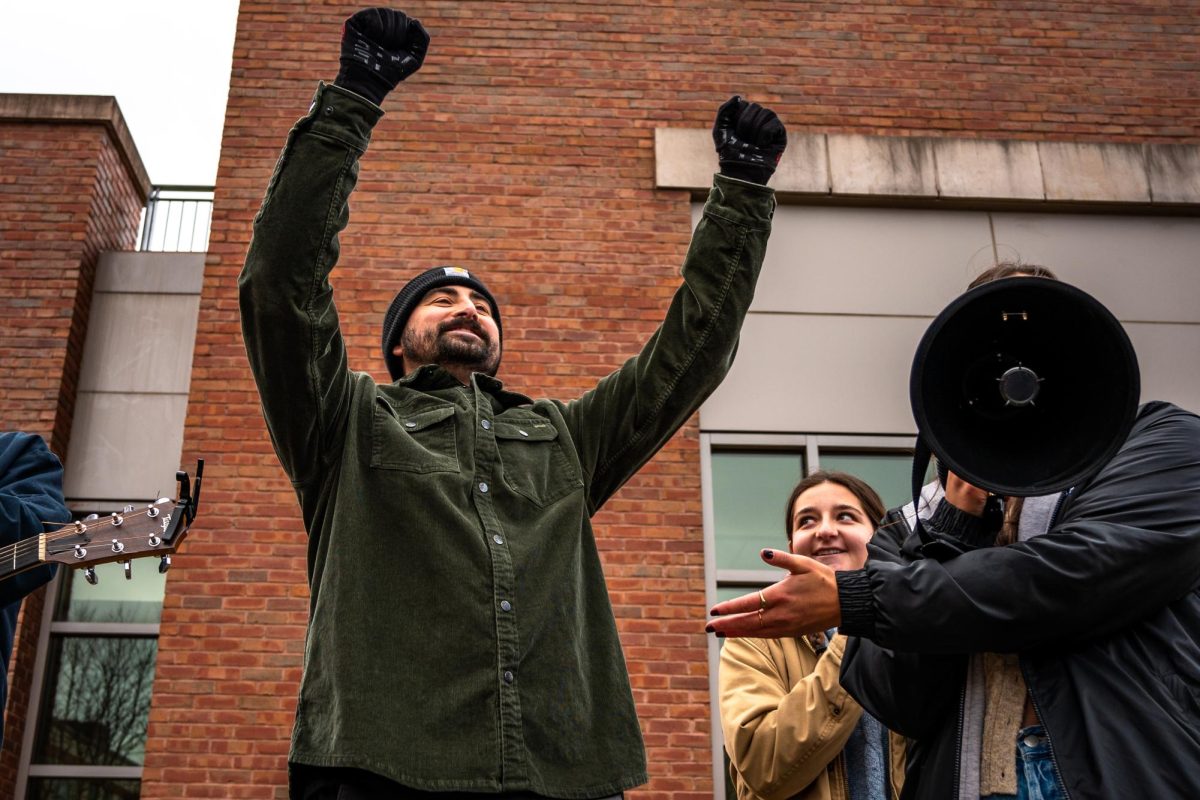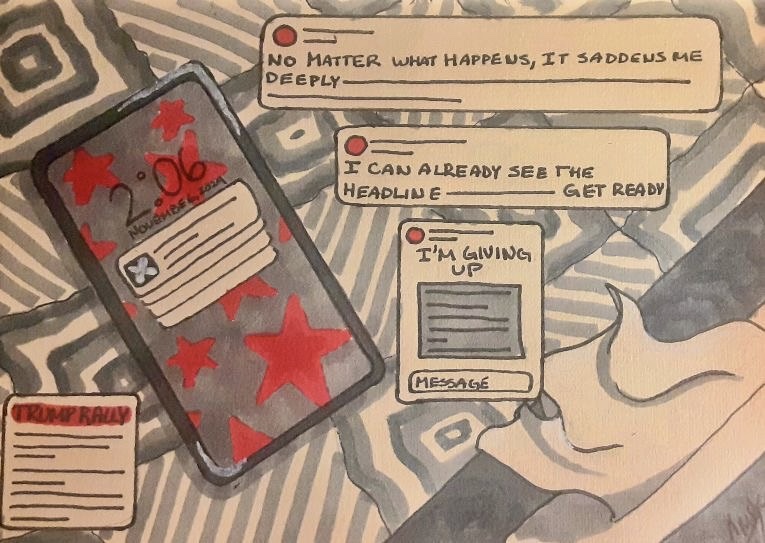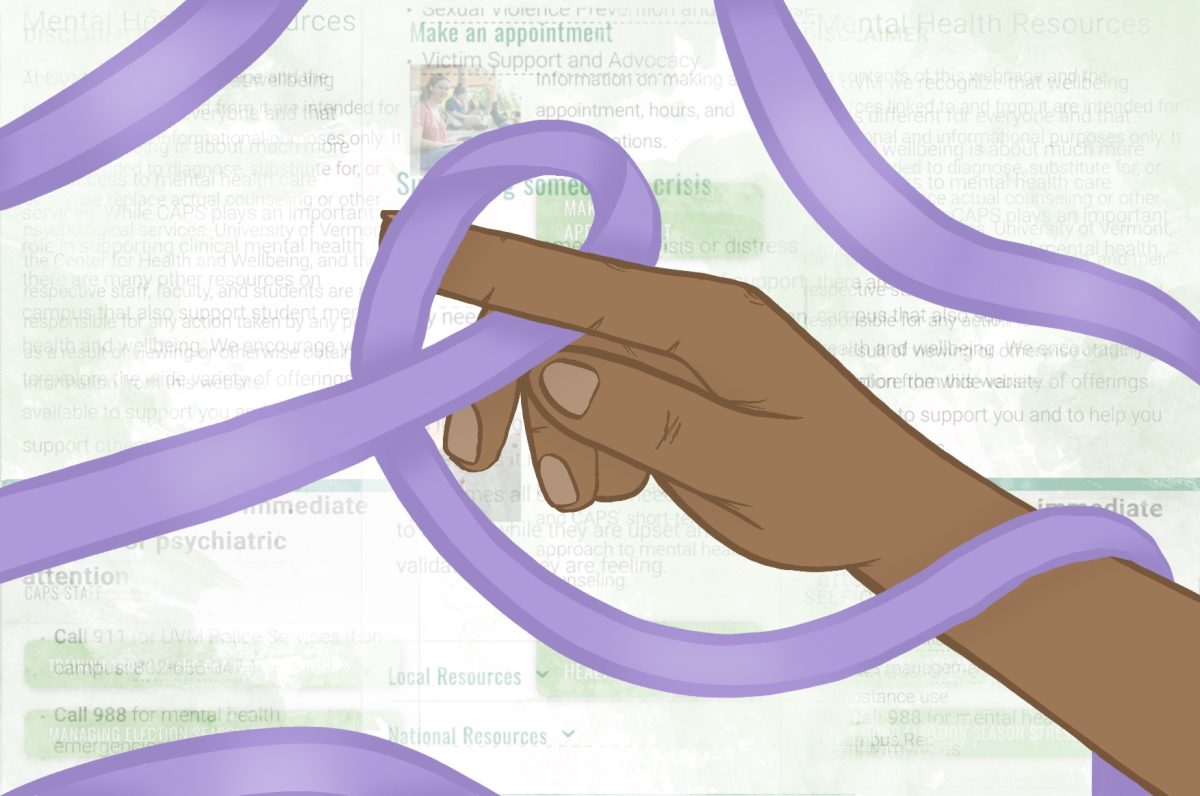The middle of the semester can be a challenge: workloads are increasing, the weather is getting cooler, but mostly, students are experiencing homesickness. A large part of missing home for college students is being separated from our furry friends.
The easiest way to get your fix of puppy kisses on campus is by going to Living Well in the Davis Center on Fridays from 10:30 to 11:30 a.m. to visit a service dog in-training.
On Sept. 27, students sat in a circle while a service dog in-training, UPRAWR’s Kiwi, bobbled back and forth doling out sniffs and kisses.
“Being around animals is very grounding,” said first-year Abby Wilson. “If you can’t really verbalize what you’re feeling, a dog doesn’t ask you to. You just want to be around someone that doesn’t need any information.”
The benefits of attending this Living Well event span beyond petting dogs like Kiwi. With many students like Wilson experiencing barriers to improving their well-being, visiting a therapy dog creates a tangible positive experience.
“Traditional mental health care can create more anxiety-producing experiences, so going and playing with a dog, even though that’s not a long-term thing, it’s something in the moment that actually helps,” said Wilson.
Aaron Masi, a student accessibility specialist at UVM, understands and highlights the emotional benefit that animals give students on campus.
“Animals provide much-needed emotional support, offering companionship and unconditional love. This connection can be especially comforting, helping to ease feelings of loneliness and homesickness that many students experience when adjusting to campus life,” he stated in a Sept. 26 email.
For a more routine dose of animal interaction, UPRAWR, a UVM club that trains and raises service and facility dogs for Assistance Canine Training Services, is the place to go.
UPRAWR is unique in that they focus on community and accessibility, in addition to spending time with the cutest puppies on campus.
“I really wanted to be a part of something that could help make the world a little bit more equal for everyone and accessible,” said UPRAWR Co-President Ellie Dixon.
Whether you’re a puppy raiser like Dixon, or you’re a general member, the club provides a greater appreciation for service dogs and the work they do, while also giving time to improve your own well-being.
“I got my first dog sophomore year,” Dixon said. “Getting a dog definitely helped regulate my schedule. It’s really hard moving and living on your own, especially for anyone that struggles with depression. I found [that] once I got a dog, I was taking better care of myself because I had to take care of myself for him.”
UPRAWR Vice President EJ Alvarez also understands that being responsible for a pet can have a positive effect on well-being.
“If I’m feeding her, I might as well feed myself. It encourages self-care and a sense of responsibility,” they said.
Apart from the dogs themselves being a mood-booster, the community surrounding UPRAWR gives members a sense of belonging and pride.
“The community is huge. I’m a strong believer that animal people are the best people,” said Alvarez.
UPRAWR Co-President Dana Srsic is also impacted by the community aspect of the club.
“I joined this club hoping to make friends,” she said. “Being able to bond over something that you already have in common is pretty easy.”
The pride that stems from being an UPRAWR member also has the potential to improve well-being. Alvarez spoke about the work they do to improve accessibility for the disabled community.
“People approaching us gives us such a great opportunity to talk about service dogs. You’ll hear people who may have had false thoughts about service dogs tell their friends ‘oh no, don’t pet the dog.’ They’re like walking education tools, which is really helpful,” Alvarez said.
Masi and UVM’s Student Accessibility Services team acknowledge the benefits for students to interact with animals.
“Pets often become conversation starters, and therapy animal sessions create opportunities for students to engage in a supportive, community-centered environment. Animals have been shown to alleviate symptoms of anxiety, depression and stress, making them a valuable complement to other forms of mental health care,” stated Masi in the Sept. 26 email.
Tending to one’s holistic well-being and mental health can become overwhelming in the midst of college life. Yet, it is integral that students utilize the resources around them for support, including kisses from four-legged friends.


